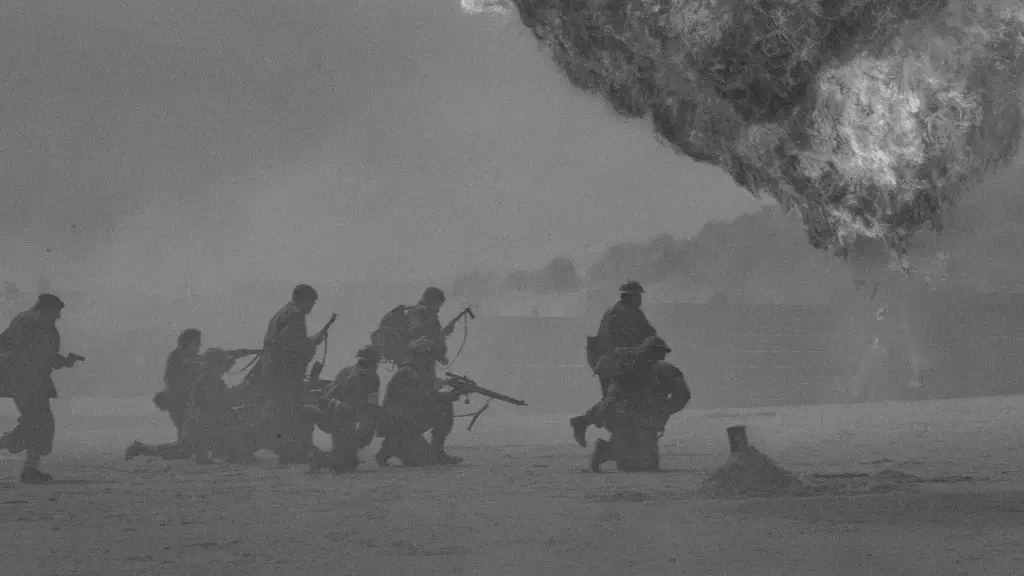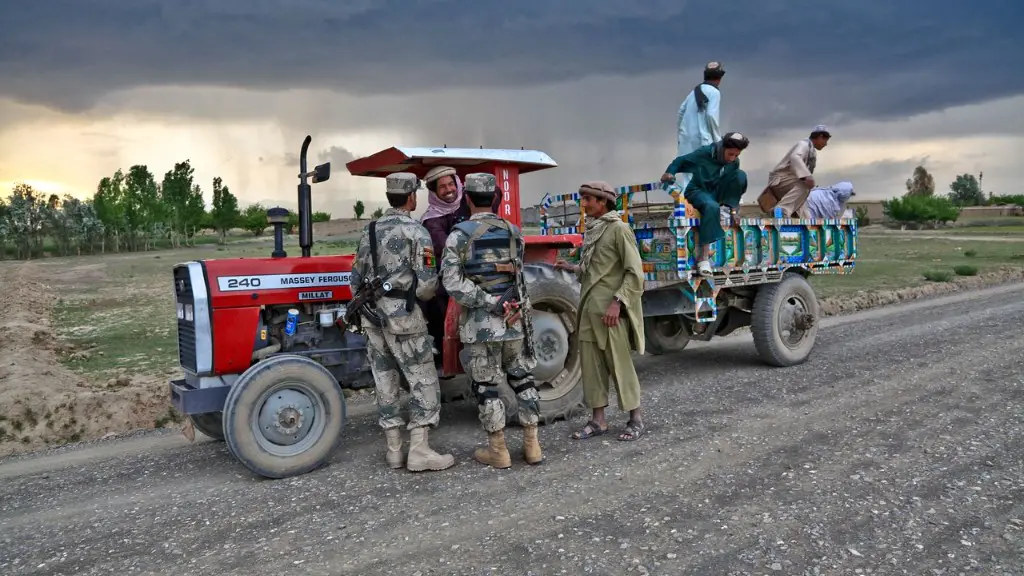Introduction
China is one of the biggest, most powerful and influential countries in the world, and its military might is a cornerstone of its global power. How strong is the Chinese army? Estimates as to the size of the Chinese military vary, but by some accounts, it is the largest standing military on Earth. China’s impressive military might is based on the size and capabilities of the People’s Liberation Army (PLA), the name for the country’s land, sea and air forces, as well as its reserve military forces. In this article, we’ll explore the size and scope of the Chinese army and its importance in geopolitics.
Size and Scale
The Chinese army is vast, and its numbers have only grown in recent years. By some estimates, its total force is in excess of 2 million people. This includes nearly 1.2 million active front-line staff, 800,000 reserves, and an additional 300,000 non-military personnel. While the actual numbers are classified, the Chinese army is undoubtedly the biggest in the world.
Impact on Geopolitics
The Chinese army has had a major impact on the geopolitics of the region. It shapes regional security dynamics in a number of ways. Firstly, its sheer size gives it a powerful capability to project military force and serve as a deterrent against regional enemies. Secondly, the Chinese army has reportedly been instrumental in supporting regional allies, such as North Korea and Pakistan, in times of conflict or potential conflict. Thirdly, the Chinese army has also been used in a number of peacekeeping missions, including in Africa and the Middle East.
Military Capabilities
Beyond sheer numbers, the Chinese army is also capable of wielding significant military strength due to the quality and sophistication of its military arsenal. The Chinese army has invested heavily in its military capabilities, from its advanced weapons and fighter jets to its nuclear weapons program. The Chinese army’s weapons arsenal is estimated to include nearly 5,000 tanks, 2,000 fighter jets, and more than 1,000 warships and submarines. In addition, its nuclear weapons program is estimated to include as many as three dozen intercontinental ballistic missiles with nuclear warheads.
Leadership
The Chinese army is led by the Central Military Commission, which is headed by President Xi Jinping. As the commander-in-chief of the Chinese army, President Jinping has been the architect of its modernization effort, and has overseen its growth in size, capability and financial investment. He is also believed to be responsible for the Chinese military’s sweeping anti-corruption reforms, which have been credited with increasing the Chinese army’s efficiency and effectiveness.
Comparing The Chinese Army
When compared to the armies of other powers, the Chinese army stands out due to its size and capabilities. For example, the US military is believed to have around 1.3 million active-duty personnel and 790,000 reserve forces. While the US has greater technological sophistication and capabilities, it does not match the sheer size of the Chinese military. Similarly, Russia’s military has an estimated 700,000 personnel, less than a third of the size of the Chinese army.
Rising Tensions
The rising strength of the Chinese army has caused increased geopolitical tensions in the region. China’s increasing military reach and capabilities have led to concerns from regional powers, particularly the United States, who worries about the possibility of China becoming a regional hegemon. Tensions have also been fueled by President Jinping’s assertive and sometimes aggressive foreign policy stance. These tensions have manifested in several areas, including the South China Sea, Taiwan, and the East and South China Seas, resulting in a number of military and political standoffs between the two countries.
Global Collaboration
Despite the growing geopolitical tensions between the United States and China, both countries have also sought to collaborate on some global issues. For example, the Chinese army has been involved in a number of United Nations-led peacekeeping missions, including in Liberia and Syria. Similarly, it has also been involved in a number of humanitarian and disaster response efforts, such as providing aid to areas affected by the 2004 Indian Ocean tsunami and the 2020 coronavirus pandemic.
Military Spending
The Chinese army’s modernization and global reach come with a financial cost. The Chinese government has checked its military spending over the past three decades, from roughly 2% of the country’s gross domestic product (GDP) in the late 1990s to more than 2.3% in 2019. This number is still lower than that of most other major powers, including the United States, which spends nearly 4% of its GDP on military efforts.
Modernization
The Chinese army’s growth in size and capability has been due in part to its modernization efforts. This includes an effort to develop advanced weapons and technologies, such as artificial intelligence and robotics. Similarly, China has also sought to build military capabilities in cyber warfare, with some estimates suggesting that it has over 250,000 personnel trained in cyber security. China’s modernization efforts have been further bolstered by its growing defense budget and its dependence on foreign military technology.
Changing Roles
The Chinese army has also sought to adapt to a changing geopolitical landscape, particularly the ongoing rivalry with the United States. This has seen the Chinese army focus more on developing the capability to fight limited wars and counter-insurgency operations, rather than fighting large-scale, conventional wars. This has included the development of logistical capabilities for deploying troops quickly and efficiently, as well as the development of “asymmetrical” military tactics, such as cyber warfare and the use of unmanned aerial vehicles.
Conclusion
The Chinese army is one of the strongest in the world, with a sheer size and capabilities that match those of its major adversaries. Its impressive growth in recent years has been driven by the country’s massive defense budget and modernization effort, and its impact on geopolitical dynamics in the region has been significant. As tensions between China and the United States remain high, the importance of the Chinese army will continue to grow.



